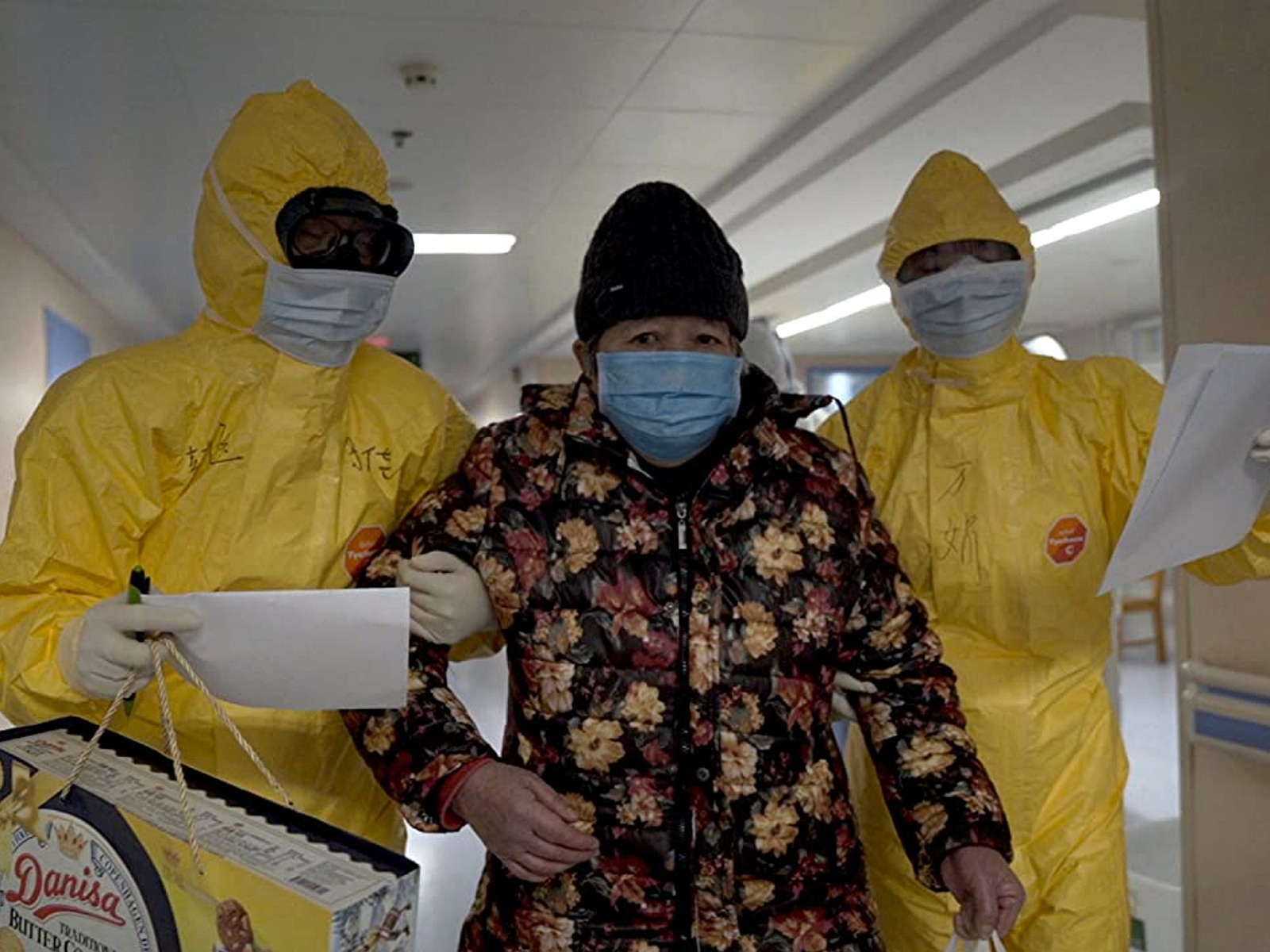
- Film
Docs: “76 Days” Documents First Chapter of the Pandemic
In a banner year for documentaries (both American and foreign), 76 Days stands out as one of the most immediate and visceral in depicting the disastrous event that has defined our present: the Covid-19 pandemic. It’s also the fastest non-fiction feature to get exposure and release. Just months after filmmaker Hao Wu, alongside two China-based journalists-turned-filmmakers, began shooting, the film was out on the festival circuit. The film first premiered at the 2020 Toronto Film Festival, and then played at AFI Fest, and DOC NYC. MTV Documentary Films launched the feature in virtual cinemas nationwide in early December. Now, it’s up for Best Documentary at this year’s Gotham Awards, and stands a good chance to earn a Best Documentary Oscar nod,
Some context is in order: On January 23, 2020, China locked down Wuhan, a city of 11 million for two and a half months (hence the title), to combat the emerging Covid-19 outbreak. Set deep inside the frontlines of the crisis, 76 Days covers some incredibly touching human stories at the center of this pandemic. These stories have unfortunately become so familiar that many viewers around the world can relate all too well.
The first scene is particularly resonant: a hospital worker, covered from head to toe in a Hazmat suit and PPE, expresses her cri de coeur in one word: “Papa!” The health worker’s father has just died, and her agony at being unable to sit by his side is overwhelming. Her colleagues restrain her as she sobs, “Papa, you’ll stay forever in my heart.” Other striking images include a person begging – in vain – to bid a final farewell to her father, a grandfather with dementia searching for his way home. There’s a couple anxious to meet their newborn baby, and a nurse going out of her way to return personal items to families of the deceased.
Shot in four Wuhan hospitals, 76 Days captures a local horror before it went on to become a global catastrophe. Given the time constraints on footage and information from Wuhan, it offers a rare window into the infancy of the pandemic. Some of the images document the fear and confusion of those early days, like a group of patients outside hospital doors, pleading to be let in. Others are by now more familiar, like the heartbreaking phone calls medical staff must place to family members of the deceased.
“There has been so much news coverage and commentary about the pandemic but most of that has primarily been about statistics and our political divide,’ Wu said in an interview. “What I think is missing is the human stories, the human faces of the pandemic.” It’s not always an easy task, as the workers are so obscured by their Hazmat suits that they’re only identifiable by the names scribed in sharpie on their backs.
In the first two months, the images of Wuhan as a city under siege were harrowing, sending most people scouring social media (both reliable and unreliable). There was an urgent global need to find out what exactly happened, and how and why the crisis went so bad, so quickly. The documentary was discretely shot across four Wuhan hospitals without government approval. The journalists would have typically been closely watched and censored by Communist party officials. However, in the ensuing chaos, they were given greater than expected free rein in access and data gathering.
Early on, Wu decided to rely more on direct observational strategy than on talking heads of doctors, health workers, and patients. To that end, he urged his collaborators to focus on the people and their details. One devastatingly poignant image shows the ziplocked cell phone of a deceased person ringing and ringing. Despite his anger and frustration, Wu also refrains from singling out the responsible agents or assigning specific blames. 76 Days consciously avoids politics to concentrate on the human aspects that prevail inside the hospitals. Says Wu: “The images that attracted me the most were those showing people willing to be nice to each other.”
Wu is an openly gay Chinese native who lives in New York with his partner and two children. He described his journey as a gay man in a conservative Chinese family in the 2019 Netflix documentary, All in My Family. 76 Days is also a personal feature for Wu, whose last trip to China was in February. After he came back, his grandfather was diagnosed with terminal liver cancer and died. Unable to visit due to travel restrictions, and also busy on the film, Wu wasn’t able to bid farewell.
His predicament, however, served as a major motivational factor, as he says: “I was compelled to tell the story that’s almost like a tribute to my grandfather. I felt guilty about not being able to say goodbye, or to hold his hand.”
It is understandable if the film appears formless and structureless – 76 Days is not the kind of feature to sustain scrutiny by more conventional artistic yardsticks. The lack of knowledge about the then-novel virus and the rapidly changing dimensions of the crisis necessarily determined the conditions under which it was made, and its ultimate format.
The intimate stories bear witness to the death and rebirth of a city under a 76-day lockdown, and to the compassion and human resilience that persists in times of tragedy. Indeed, the greatest merit of 76 Days is in offering an immediate view from history’s frontlines about a global crisis that’s severe enough to define an entire decade – and a century.